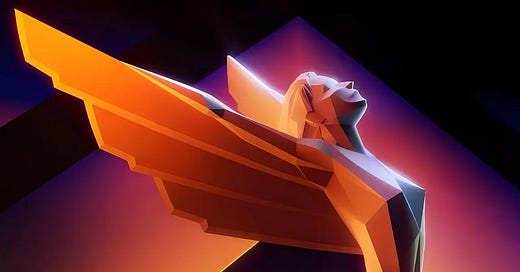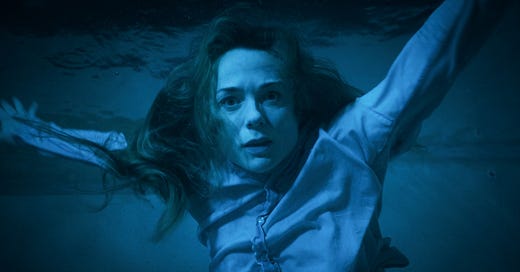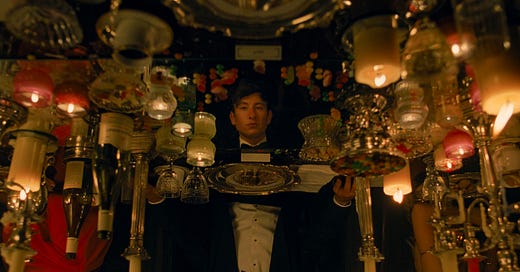
Gaming's Credibility Gap
The Game Awards highlights where the industry's priorities are, and it's not a flattering portrait.
Last week, The Game Awards held their 10th annual awards show. On Bluesky, author James B. Jones clocked how the 3-hour and 34-minute show allocated its time. Jones says that 41:29 of the entire show (or 19.33%) spent time on the actual awards. That disparity (especially with recipients only having about 30 seconds to accept their award assuming the show even bothered to give the award out during the broadcast and not the pre-show) highlighted where the show’s real interest was: marketing for upcoming games. For the game industry, the past and present are irrelevant compared to the future.
While I’ve argued in the past that the Oscars would probably get a ratings boost if they threw in some trailers for big upcoming movies (trailers that end up running, understandably, to a larger audience for the Super Bowl), I certainly wouldn’t want the show to be 80% marketing for upcoming films. While it’s easy to kvetch about how long the Oscars feel, I also don’t mind that they make time for clip packages celebrating certain genres, filmmakers, actors, etc. For all its faults, when the Oscars work, they feel like a celebration of movies for an audience of movie lovers. (When they’re at their worst, they hedge and act like movies are stupid in an attempt to appeal to a casual viewer who isn’t watching the show in the first place.)
Gaming is still a relatively young industry, but in a year where thousands of people in gaming lost their jobs, the big awards show simply ignoring those losses is a telling sign of the gap between the companies that distribute the games (and fund The Game Awards) and the people who actually make the games. However, the lack of game unions has allowed the industry and the public at large to overlook these stresses as opposed to this past summer where multiple labor unions were able to get concessions from management on pay, hours, and more. Writers and actors were able to grind Hollywood to a halt; Microsoft hasn’t skipped a beat since laying off 10,000 people at the start of the year.
Of course, this disparity also highlights one of gaming’s biggest issues: It seeks to be a respected art form, but it rests on rapidly shifting technology where you’re not only running into creative barriers, but engineering challenges. But a lack of respect for the time and effort of making great games shows an industry that will never fully mature beyond diversion. Credibility isn’t simply a matter of handing out trophies; it’s understanding and respecting those accomplishments in the first place.
The Past Is Not the Enemy of the Future
Because gaming has one foot in art and another in tech, it has a unique place where it becomes dated in a way other art does not, yet can be looked back on fondly in a way that escapes tech. We don’t think the Mona Lisa is outdated simply because you can now take a photo of a person even though photography did change how painters approached their artwork. We also continue to admire classic games like Super Mario Bros. while remaining indifferent to software like Windows 95. Because gaming continues to advance, it sits awkwardly in its own history. The hardware we needed to play a certain game becomes outdated, and the technology moves on in a way that renders that game further removed from the cultural conversation. A Game Boy, one of the most popular consoles of all time, becomes a curiosity for a younger generation.
This puts gaming companies in a tricky position, because unlike (for example) movie studios, they can’t easily transfer an older game to a newer format, and even if they did, those older games lack the visuals and gameplay features of newer releases. Spider-Man 2, a terrific game based on the 2004 movie, is less than twenty years old, but it looks ancient next to the Spider-Man 2 game Insomniac released this year. While some classic games remain endearing due to their ease-of-use and craftsmanship (e.g. the original Super Mario Bros. or Pac-Man), so much of gaming is comprised of technological advancement.
In this way, preservation becomes incredibly difficult. There’s a devoted community of retro gamers and people who work on emulators, but gaming companies invest relatively little into preserving their own libraries. Part of this is simply a matter of how companies have changed, disappeared, and consolidated over the years so copyright issues prevent any kind of re-release, but another part is that it’s in the interest of these companies to keep you looking forward because they invest heavily in new technology. Sony created a marvel with their new controller for the PlayStation 5; I can’t really blame them if they’re not interested in re-releasing a bunch of PlayStation 2 game that can’t take advantage of that controller, and lack the graphics that players have come to expect from newer releases.
But art needs history. It needs history to inform its next movements. No artist starts in a vacuum, and an audience that begins there will fail to appreciate the choices the artist is making. While this doesn’t mean that every gamer needs to play games from every console generation to enjoy a new release, it does make those older games more ephemeral. They become attached to a moment in time, and that’s fine, but they don’t endure in the same way as other art forms. Technological limitations end up forcing older games into a closet or yard sale.
Those older games certainly weren’t on display at The Game Awards. While other award shows take some time to showcase the industry’s history and remind viewers why they like the overall art form, The Game Awards only celebrates the past as a way to market the future. When you bring Hideo Kojima on stage, it’s not to talk about the legacy of his Metal Gear Solid games; it’s to announce his upcoming horror game he’s making with Jordan Peele. And while that’s certainly exciting, it’s also emblematic of how the industry wants to address its audience—consumers of an upcoming product, not connoisseurs of past artwork.
The Present Turned Afterthought
The Game Awards’ emphasis on the future also overshadowed its chaotic present. I am 99% sure that when the Oscars and Emmys come around, they will address the strikes in some way. It may be as simple as a joke from the host, but these major industry upheavals won’t be ignored in the way that The Game Awards turned a blind eye to turmoil in its industry. How can you feasibly claim that audiences should have any appreciation towards gaming when you limit the time for developers to accept awards, and fail to acknowledge how many developers have lost their jobs in the last year alone?
As one of my favorite books this year, Oscar Wars, shows, award ceremonies aren’t really about “getting it right” in terms of the individual winners. Instead, they’re unique insights into how an industry thinks about itself. Even if you think The Game Awards are and have always been a thinly-veiled advertisement for upcoming games, that in and of itself tells you plenty about how the industry sees its relationship to its art and its audience.
Gamers—and, to a lesser extent, the gaming industry—want to be taken seriously. The more seriously they’re taken, the more cultural force they exert and staying power they maintain. We’re still watching TV and movies even if they’re no longer as central to the culture as they once were, in part because that entertainment values what came before. But the gaming industry remains largely indifferent to appreciating either its past or its present. Without appreciation, you only have anticipation, and while it’s fine to be excited for the next big thing, discarding it as soon as it’s released means there’s no time for it to become bigger than a sales figure. It doesn’t get shared between generations or examined in new contexts.
In the 1970s-80s, it was easy to dismiss gaming as a fad. Kids loved it, but there was no way it could stick around. Decades later, the gaming industry has persevered and thrived financially, but the way it treats its own work remains locked in a fad-mentality. It doesn’t care for the games that came before or the people who make them now. And if the industry is fine making cheap, gaudy baubles that fail to endure, then that’s literally and figuratively their business. But if they want to be taken seriously as an artistic force, then they’re going to need a hard reset.
















Great points all around! The Oscars actually tried out a bit of marketing for future movies last year, with the extended advertisement for The Little Mermaid live-action remake, and it did not go over well at all with the audiences and critics because it did seem to open the door to crass commercialism rather than a celebration of cinema's history and more particularly a celebration of the previous year of cinema. The Game Awards could do so much with clips of past games on a theme, musical performances not just from the past year but from games of the past, maybe a lifetime achievement award section, and an in memoriam segment. Instead, as you say, it's mostly just ads for upcoming games, not that different from a dozen showcase events every year. It was also pretty egregious how quickly they got the winners off the stage. I know listening to people thank other people can be tedious, but at least give them more than 30 seconds!
All that said, the musical performance of Herald of Darkness from Alan Wake 2 was a stand-out moment in the show and I'll probably watch it on YouTube about a million times.